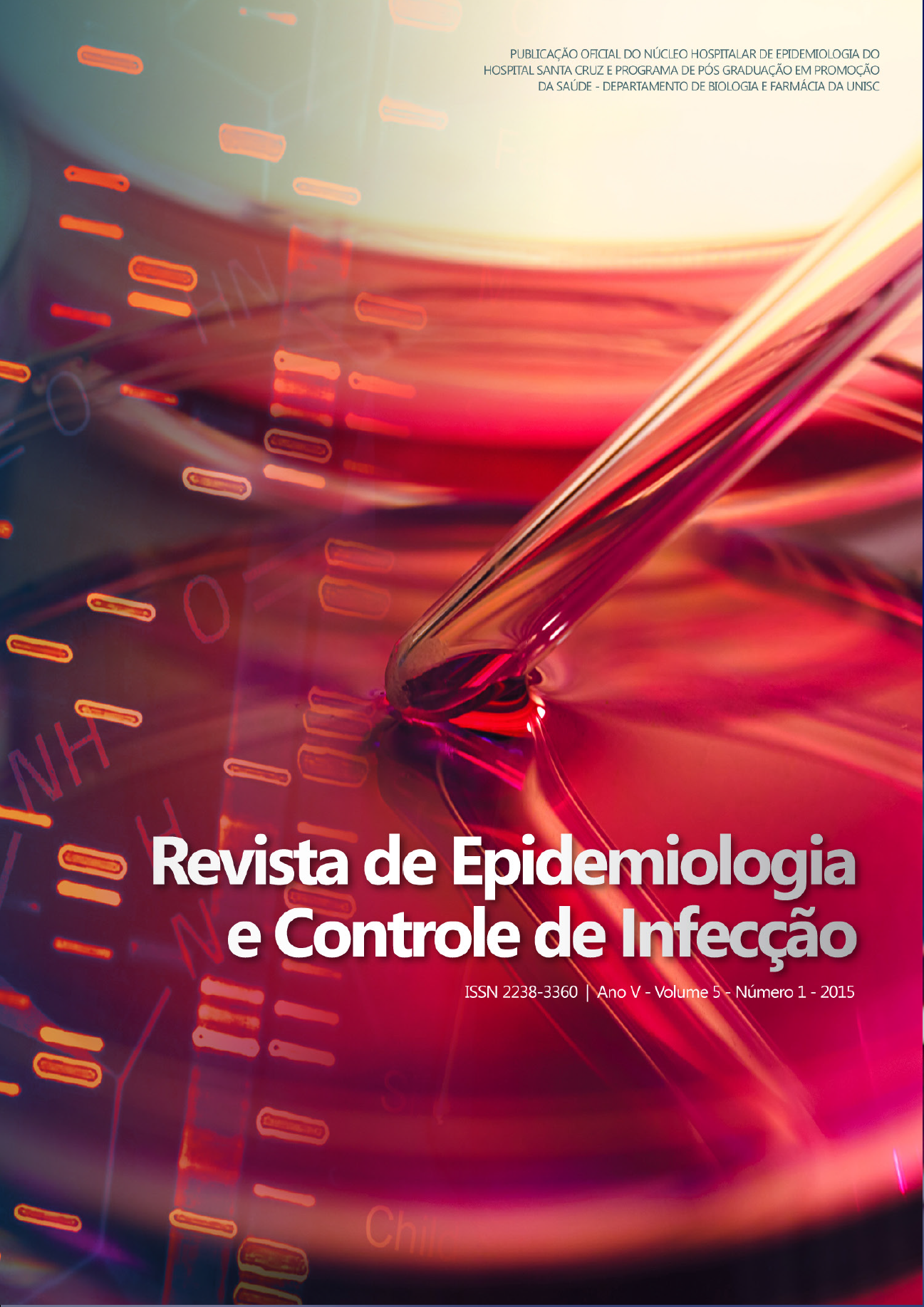Smoking and clinical profile of chronic obstructive pulmonary disease patients participating in a clinical research in Santa Cruz do Sul – RS.
DOI:
https://doi.org/10.17058/reci.v5i1.5372Abstract
Backgound and Objectives: Chronic Obstructive Pulmonary Disease (COPD), of which smoking is as primary risk factor, has a slow, progressive and irreversible course. Initially the disease is asymptomatic and COPD quickly worsens in those who continue smoking. Therefore, the aim of study was to evaluate the sociodemographic characteristics, smoking history and lung function of COPD patients participating in a clinical research in Santa Cruz do Sul (SCS) – RS. Methods: Cross-sectional study with 46 COPD patients participating in the Pulmonary Rehabilitation Group at Santa Cruz Hospital. The analyzed variables were: sociodemographic and clinical data, smoking history and pulmonary function by spirometry test. Results: The 46 COPD patients were distributed as ex-smokers (n=34) and current smokers (n=12) with a predominance of the male gender, advanced adult age, Caucasian ethnicity and high number of patients with incomplete elementary education and low family incomes. The historic family of COPD was more prevalent among smokers and the presence of respiratory diseases in childhood was equally distributed between ex-smokers and current smokers. Time of smoking in patients with COPD was significantly lower in ex-smokers (p = 0.004) and they were at the most severe stage of the disease (according to the FEV1/ FVC ratio, p = 0.044) in comparison to current smokers. Conclusion: COPD patients who participated in a clinical research in SCS were frequently adults, Caucasians, with high smoking load (for ex-smokers and current smokers) and a family history of COPD. COPD patients that smoked had a milder form of the disease. KEYWORDS: COPD; Smoking; Epidemiology; Evaluation.Downloads
Downloads
Published
How to Cite
Issue
Section
License
The author must state that the paper is original (has not been published previously), not infringing any copyright or other ownership right involving third parties. Once the paper is submitted, the Journal reserves the right to make normative changes, such as spelling and grammar, in order to maintain the language standard, but respecting the author’s style. The published papers become ownership of RECI, considering that all the opinions expressed by the authors are their responsibility. Because we are an open access journal, we allow free use of articles in educational and scientific applications provided the source is cited under the Creative Commons CC-BY license.


